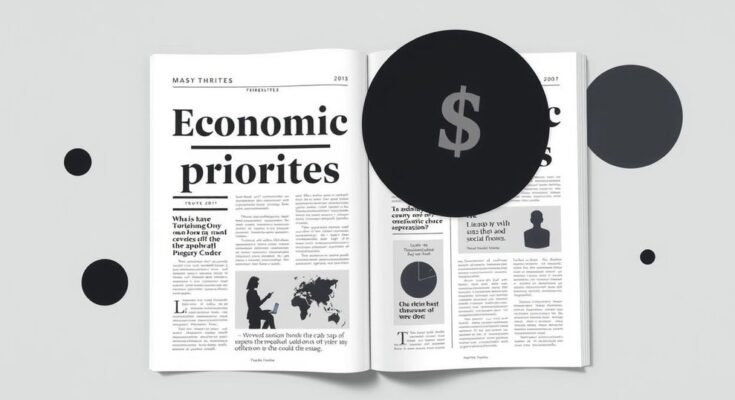The House of Representatives’ recent call to ban pornography in Nigeria has sparked widespread criticism among citizens, who argue that pressing economic issues should be prioritized. Many emphasize the importance of addressing challenges like rising food costs and insecurity, rather than focusing on internet censorship. The public sentiment conveys disappointment at lawmakers for their perceived detachment from the real-life struggles faced by the average Nigerian.
The recent initiative by Nigeria’s House of Representatives to ban pornography has triggered significant backlash among citizens who argue that pressing socio-economic issues are being ignored. While the legislature claims that blocking pornographic content is crucial to safeguarding moral values, Nigerians express that economic challenges such as rising food costs, job losses, and security concerns should take precedence over internet censorship.
On Tuesday, a motion led by Dalhatu Tafoki urged the Nigerian Communications Commission (NCC) to mandate Internet Service Providers (ISPs) to restrict access to pornographic websites. The rationale behind this movement suggests that doing so will combat issues related to marital fidelity and unrealistic sexual expectations. However, many citizens question this priority amid ongoing hardship.
Social media reactions reflect widespread frustration. Comments from individuals like Sunday Osuyak articulate that pornography ranks low on the list of the nation’s challenges, stating, “If you list five major problems that affect our nation… pornography is not one of them!” The sentiment echoes among others like Stanley Okpala, who criticized legislators for not focusing on pressing issues like economic hardship and insecurity.
Additionally, concerns were raised about the rising costs of internet data and essential services, which many believe lawmakers should address rather than policing personal viewing habits. Popular figure Martina Vincent Otse also condemned the lawmakers’ misplaced focus, suggesting that prioritizing such legislation distracts from the urgent economic realities faced by Nigerians.
As dissatisfaction with legislative priorities continues to grow, citizens are calling for meaningful action on issues that directly improve their daily lives, such as job creation and cost of living. The House’s defense highlights international precedents for banning pornography, yet many citizens remain skeptical about the relevance of such measures in the face of tangible challenges impacting their quality of life.
In conclusion, the push to ban pornography by Nigeria’s House of Representatives has been met with considerable public opposition, as many citizens prioritize urgent economic and social issues. The disconnect between lawmakers and the daily struggles of the populace highlights an ongoing dissatisfaction with the legislative focus. As Nigeria navigates various significant challenges, the demand for meaningful governmental action that directly addresses the needs of its citizens continues to grow.
Original Source: businessday.ng




